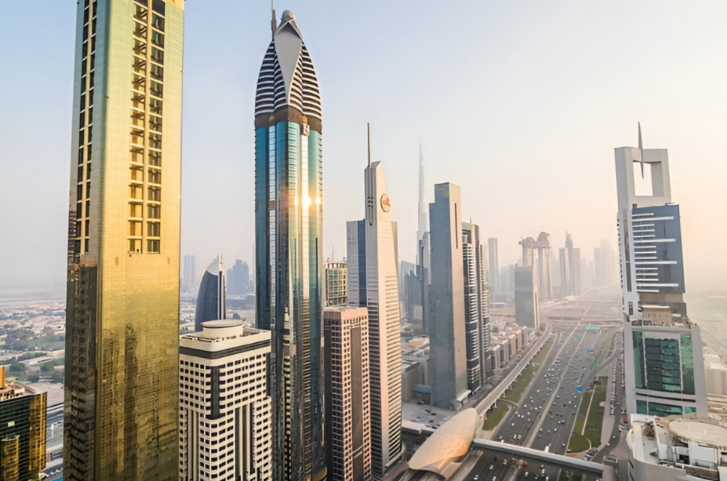
Real Estate
Dubai Property Market Emerges as a Global Investment Powerhouse
In 2025, Dubai’s real estate sector is demonstrating not just rapid growth, but also strategic evolution. Guided by long-term planning, strong investor trust, and transparent regulations, the emirate has positioned itself as a mature, globally competitive market. The focus has shifted from speculative gains to sustainable development, underpinned by a stable growth trajectory.
According to data from the Dubai Land Department (DLD), the first half of 2025 saw over 96,000 property transactions worth Dh322 billion, with nearly 45% of the total value coming from off-plan sales. Bayut’s market insights reveal heightened activity in affordable and mid-tier communities, where rental yields and end-user demand remain consistently strong.
First Half of 2025 Market Highlights:
-
Apartment prices rose by up to 13% compared to the second half of 2024, led by demand in Dubai Silicon Oasis, International City, and Jumeirah Lake Towers.
-
Villa prices surged by as much as 25%, with Dubailand, Arabian Ranches 3, and Dubai Hills Estate seeing the highest demand.
-
High-yield apartments in International City, Dubai Sports City, Dubai Silicon Oasis, and JVC recorded gross rental yields between 7% and 11%.
-
Popular communities averaged yields between 5% and 8%, with villas in JVC offering the highest returns at 7.28%.
This performance reflects a market increasingly shaped by off-plan project launches, buyer confidence, and diverse housing options.
Demand-Driven Growth
The current wave of demand is led by families relocating to Dubai, professionals seeking long-term residency, and institutions making calculated investments. Luxury developments continue to attract global high-net-worth investors, while mid-market communities enjoy strong regional interest.
Developers have adopted a more disciplined approach, aligning project launches with actual market demand. Master-planned communities such as Dubai Hills, Tilal Al Ghaf, and Dubai Creek Harbour are thriving due to their integrated lifestyle offerings.
Policy Support and Investor Confidence
Dubai’s macroeconomic stability is reinforced by policies like the Golden Visa, foreign ownership reforms, and tax incentives, which have reshaped investor sentiment. Enhanced market transparency, aided by tools such as Bayut’s TruEstimate and detailed property transaction data, has fostered a more predictable and trustworthy investment environment.
Sustainable Returns
Average gross rental yields of 6–8% are driven by end-user demand rather than short-term speculation. Freehold ownership, efficient transactions, and strong governance make Dubai one of the most attractive markets for long-term property investment.
Luxury Sector Resilience
The ultra-luxury market is backed by strong fundamentals. Dubai now ranks among the world’s top 20 wealthiest cities, with over 81,000 millionaires calling it home. For high-net-worth individuals, the emirate offers not only prime real estate but also lifestyle, stability, and secure returns.
With more than 81,000 new homes expected in 2025, the supply pipeline is supported by infrastructure upgrades, enhanced connectivity, and the rise of new urban hubs.
Proptech Transforming the Market
According to Haider Ali Khan, CEO of Bayut and dubizzle and Board Member of the Dubai Chamber of Digital Economy, proptech innovations are reshaping how buyers discover, evaluate, and purchase properties. Data-driven platforms and intelligent tools are fostering faster, more informed, and more inclusive decision-making.
“Dubai’s success lies in the synergy between forward-thinking policy and digital progress,” Khan said. “This combination keeps global investor confidence strong and ensures market resilience.”
With policy foresight, demand-led development, and technology-driven engagement, Dubai continues to set the benchmark for a future-ready global real estate market.
📢
Advertisement Space
750x200 pixels
Click to book this space
Comments (0)
Please log in to post a comment
Login to CommentNo comments yet. Be the first to share your thoughts!